Are you looking to draft a material supply agreement but don't know where to start? Writing a clear and concise letter can set the tone for a successful partnership, ensuring both parties understand their responsibilities and expectations. From outlining the terms of supply to establishing delivery schedules, a well-structured agreement is key for smooth operations. Dive into our detailed guide to explore essential elements you should include in your letter template!

Parties Involved
A material supply agreement typically outlines the responsibilities and obligations of the parties involved in the transaction. Key entities such as "Supplier" and "Purchaser" play vital roles in this contractual relationship. The Supplier refers to the company or individual providing the materials, often identified with a legal business name, contact details, and physical address. The Purchaser, on the other hand, is the entity receiving these materials, usually including their business name, location, and point of contact for correspondence. Specific details regarding the type of materials supplied, such as quantities, quality standards, and delivery schedules, are crucial for defining the scope of the agreement. Legal definitions may vary, reflecting geographical jurisdictions such as state laws or international regulations that govern the contract. Each party's obligations, including payment terms, delivery responsibilities, and liability clauses, form an essential framework for successful collaboration.
Detailed Material Description
The material supply agreement outlines specifications for key materials, focusing on high-quality construction gravel (type: crushed stone, size: 0.5 to 1 inch, sourced from local quarries). This gravel, commonly used in road and infrastructure projects, meets industry standards for durability and stability, ensuring optimal performance under heavy loads. A minimum order quantity of 500 tons is required, with a delivery timeline set for within 10 business days after the order confirmation. Each batch undergoes quality control testing to certify compliance with ASTM standards, ensuring consistency. Other materials include Portland cement (grade: 42.5, sourced from reputable manufacturers), which is essential for binding aggregates in concrete applications. The agreement also specifies a regular supply of rebar (grade: 60, size: #4 to #8), critical for reinforcing concrete in construction projects. Delivery to the designated site must be coordinated to align with project schedules, ensuring no delays in construction timelines.
Pricing and Payment Terms
A material supply agreement defines the pricing and payment terms, establishing financial expectations for both parties involved. The pricing structure often includes unit costs for specific materials such as steel (often measured in metric tons) or concrete (calculated per cubic meter), ensuring clarity. Payment terms detail the timeline, typically including net payment terms of 30 days from the invoice date or an upfront deposit of 20%, ensuring prompt material delivery. Additionally, provisions for late payment penalties, often around 1.5% per month, protect suppliers while incentives for early payment, such as a 2% discount, encourage prompt settlement. Accuracy in stating currency, whether USD, EUR, or local currencies, is critical for clarity. Frequent review dates, perhaps quarterly, may also be included to adjust pricing based on market fluctuations or logistical costs, ensuring both parties remain aligned throughout the contractual period.
Delivery Schedule and Logistics
A well-structured material supply agreement must include a clear delivery schedule and logistics plan to ensure timely and efficient transportation of goods. For instance, the agreement may outline that deliveries will occur bi-weekly, specifically on Wednesdays and Fridays, covering regions such as New York City and Los Angeles. Logistics details should specify preferred carriers, like FedEx or UPS, and handling methods for fragile materials to minimize damage. Additional provisions might include penalties for late deliveries exceeding a grace period of 48 hours, whereas successful delivery will require signed receipts confirming receipt by designated personnel. Tracking systems should also be mentioned, highlighting the use of GPS and online tracking tools to enhance visibility and communication between suppliers and clients throughout the delivery process.
Terms and Conditions
Material supply agreements outline crucial aspects such as delivery timelines, payment terms, and specifications for the supplied materials, ensuring both parties understand their obligations. Key provisions may include the quantity and quality of materials, with accepted industry standards for specific products like concrete or steel. Payment terms often specify a net 30 days timeline, ensuring suppliers receive timely compensation, while penalty clauses can couple with late payments to safeguard interests. The terms may also involve clauses for dispute resolution, indicating preferred methods like arbitration in commercial hubs such as New York City, to streamline conflict resolution processes. Additionally, these agreements often include duration and renewal terms, delineating periods like a one-year term with automatic renewal options unless otherwise terminated. Specificity in all sections ultimately aims to protect the interests of both the supplier and buyer, fostering a cooperative business relationship.

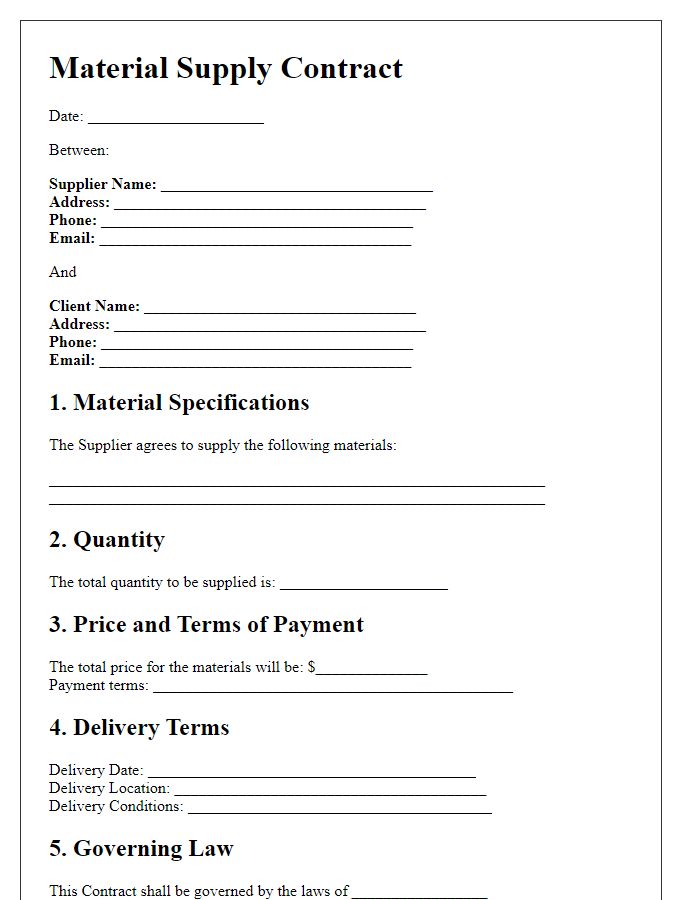
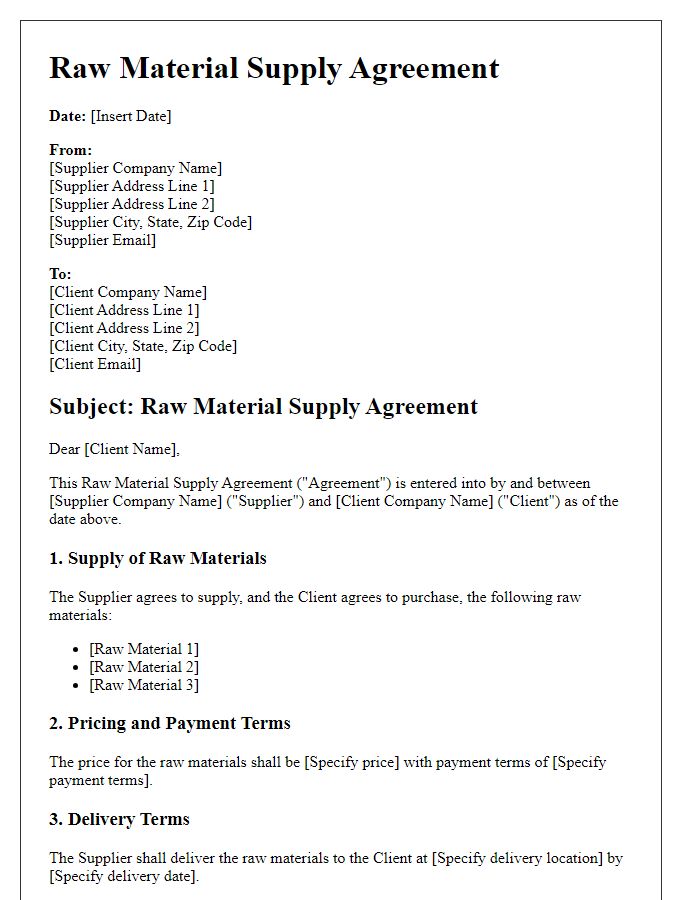
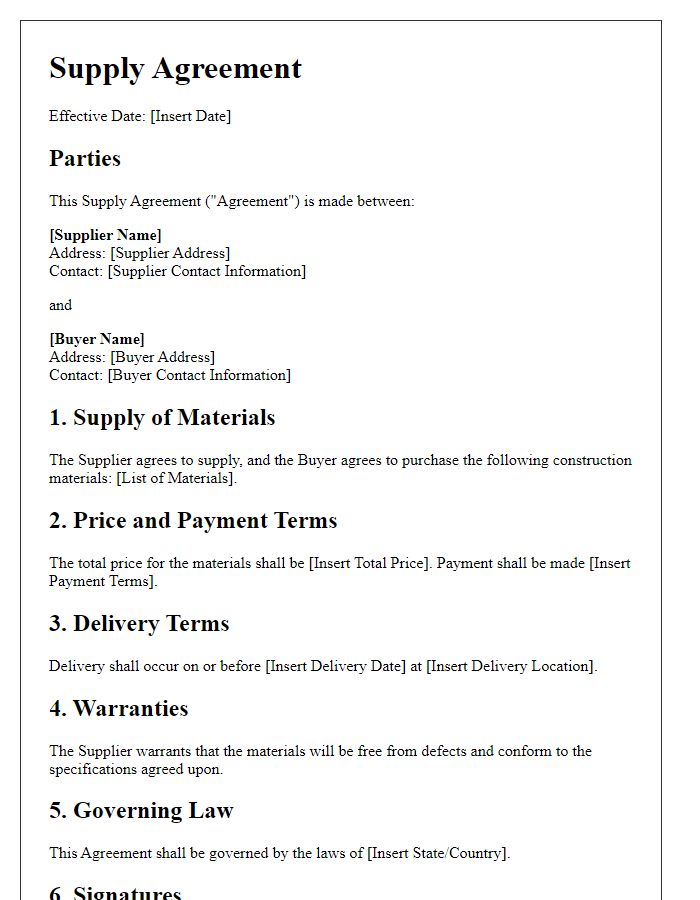
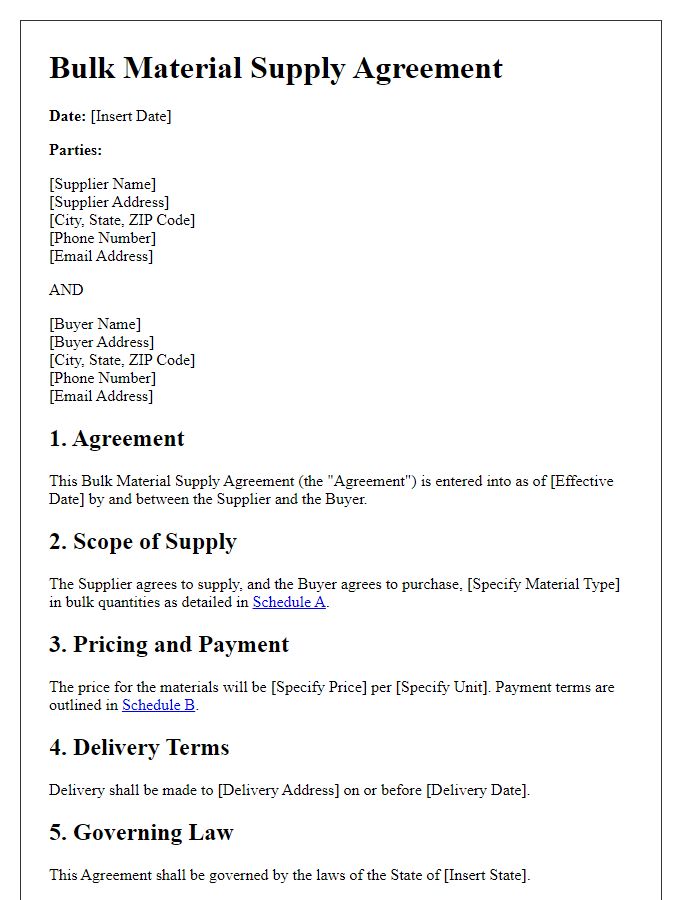
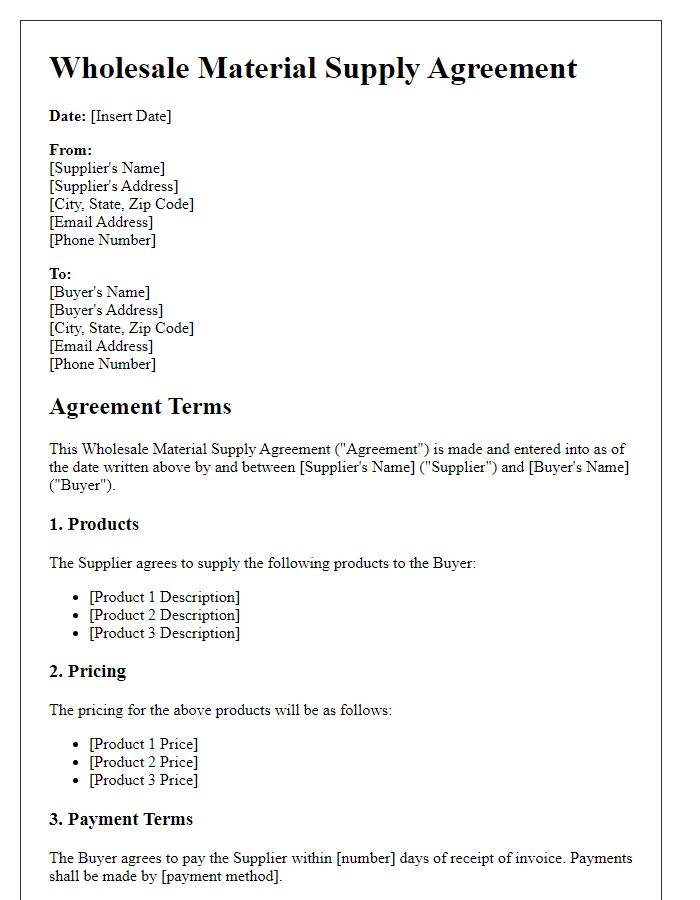
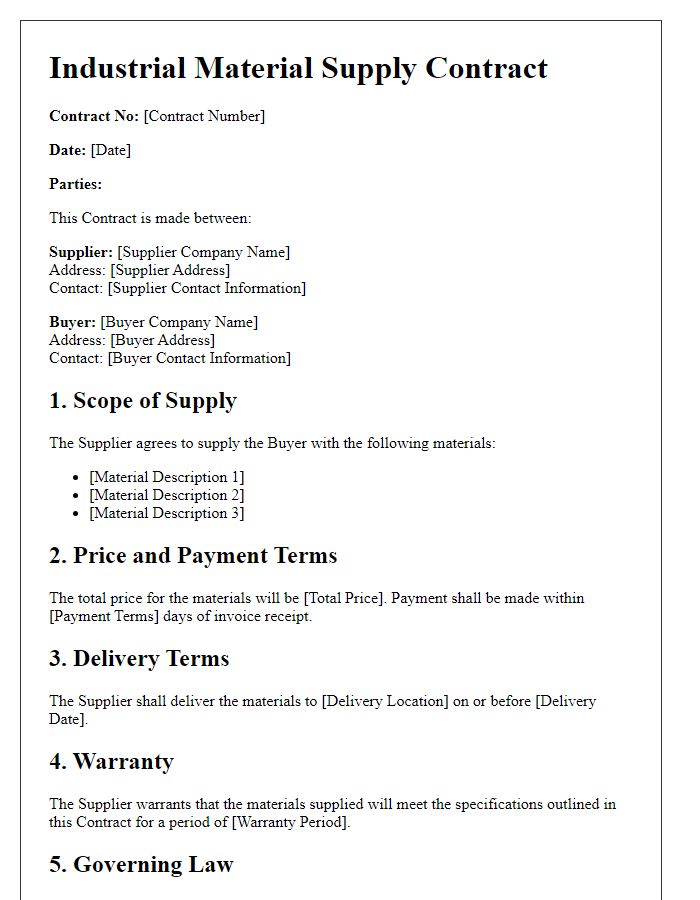
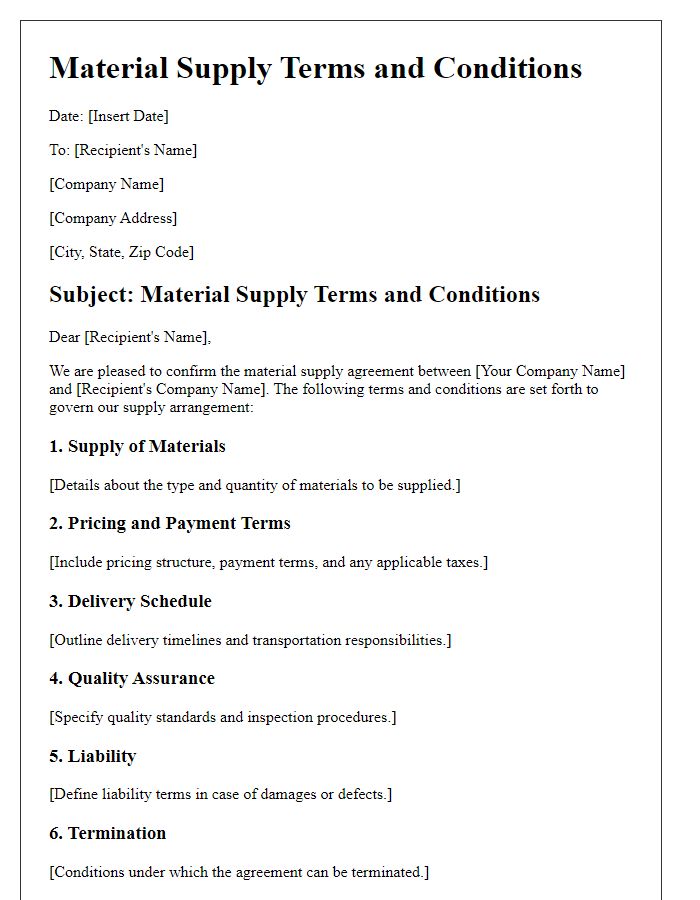
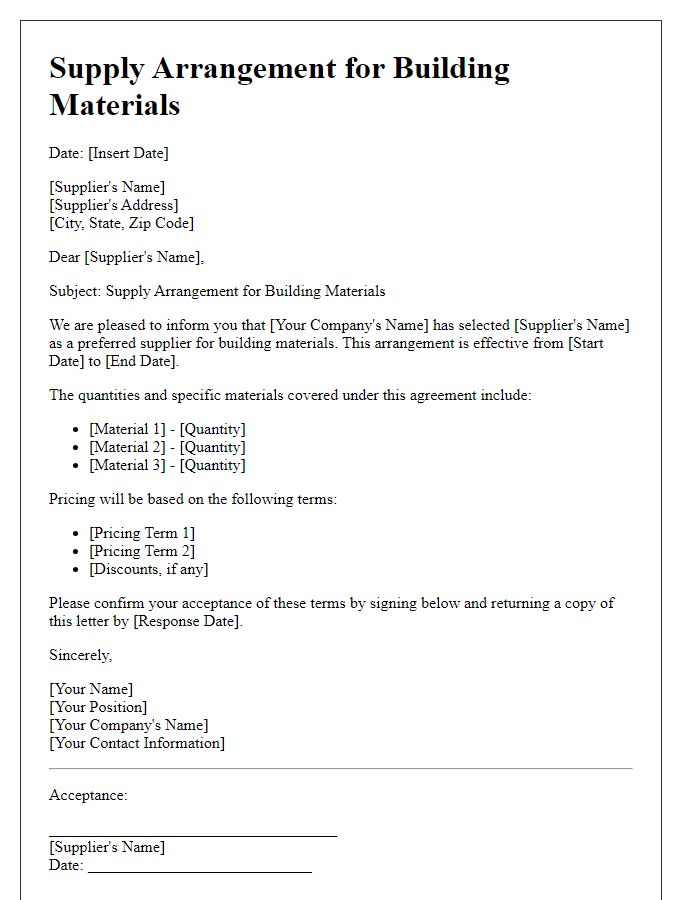
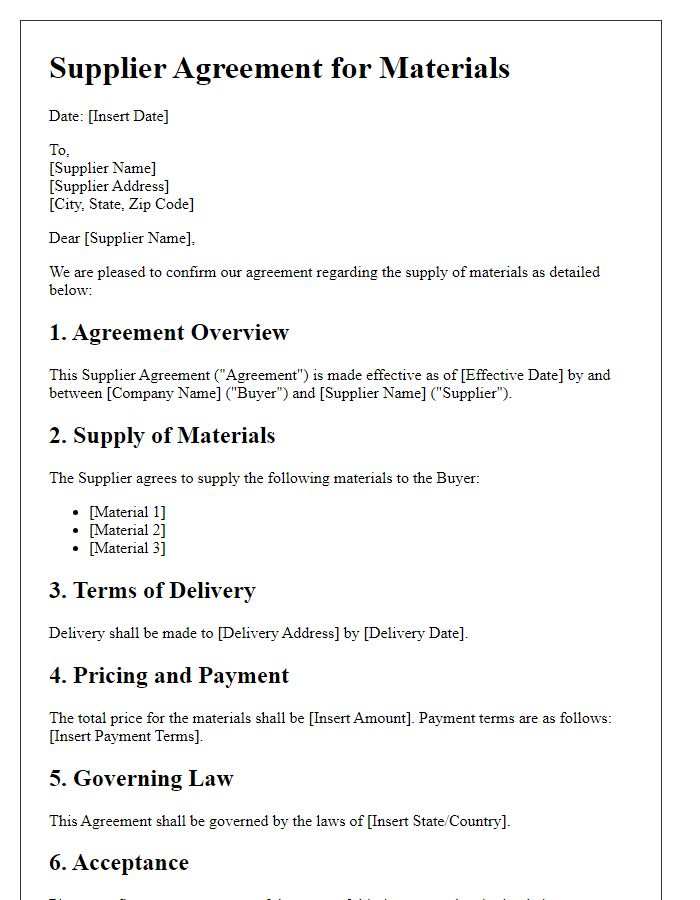
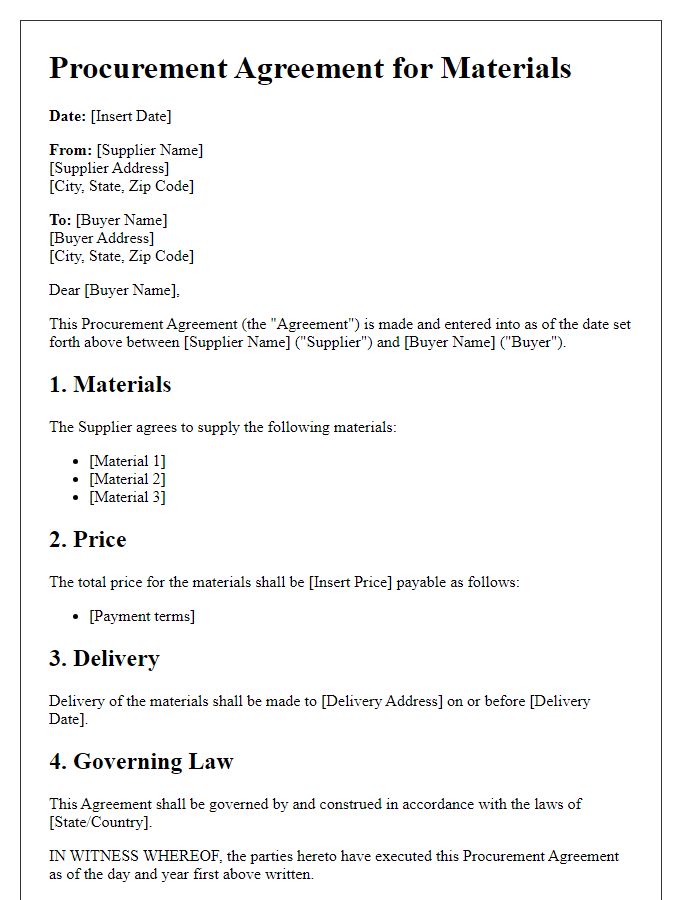


Comments